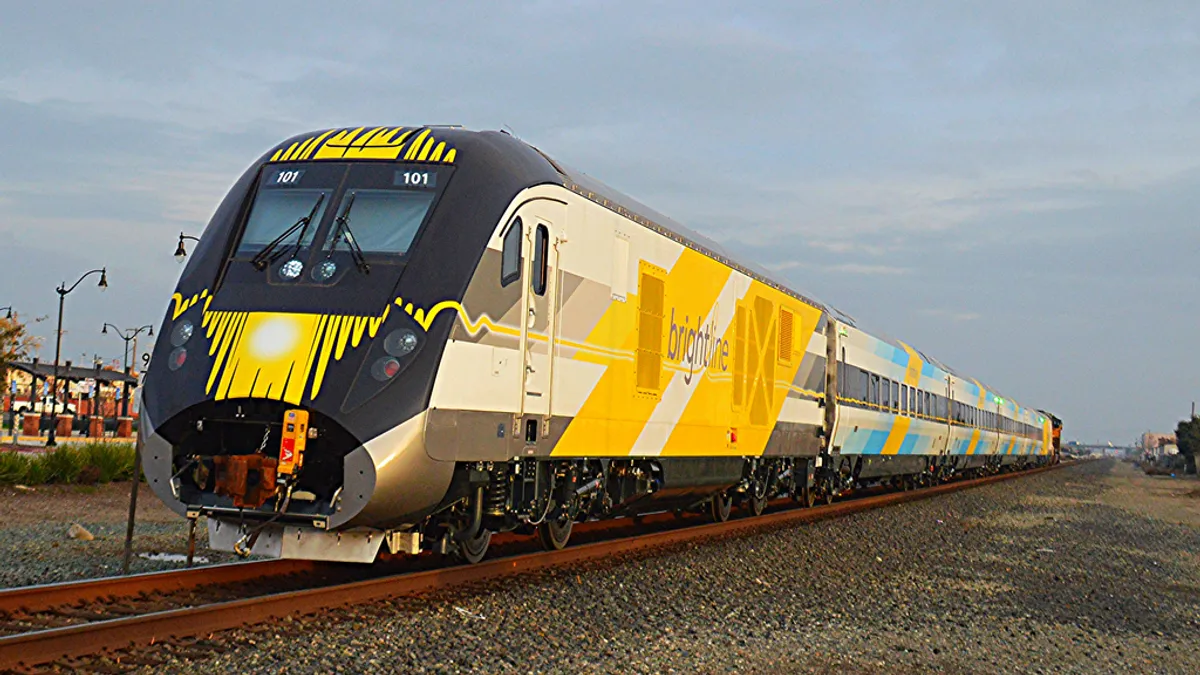Dive Brief:
- The U.S. Department of Transportation has approved the next phase of Florida's private Brightline high-speed passenger rail service, even before operations have officially begun on the first leg, according to The Sun-Sentinel and others. The train eventually will cover a large part of Florida, running from Miami to Orlando.
- Service on the first leg was slated to begin over the summer but that date has been pushed back several times. Testing is now happening between Fort Lauderdale and West Palm Beach, but it's unclear if Brightline will still make its deadline of officially launching service this year.
- Construction on phase two of the project, the portion from West Palm Beach to Orlando, is expected to begin in early 2018.
Dive Insight:
Much of Florida lacks significant transportation infrastructure other than roadways, making residents very car-dependent. Adding to that is the fact that even the state's biggest cities are prone to sprawl and much of the state is rural. The Brightline has been a long-anticipated option to take travelers from the urban sections of South Florida, through many rural areas, and to Orlando.
The diesel train will rival the speeds on Amtrak's high-speed Acela service; it can travel at up to 120 mph, but will top out around 80 mph between its South Florida stops. Driving from Miami to Orlando typically takes about four hours, and Brightline will reportedly cut that by about an hour, according to its parent company, All Aboard Florida. Getting from Miami to West Palm Beach will take an hour, compared with the usual time of an hour-and-a-half, depending on the severity of the area's notorious traffic congestion.
Citizens and lawmakers, especially those in the lesser populated areas of the Treasure Coast where the train will not stop, had protested the rail in their areas for safety and quality of life concerns. Some people in Central Florida still want more safety measures put in place, such as fencing along the tracks. Brightline has agreed to additional safety measures but has kept quiet on what they will be. Although the delays in officially launching service are causing criticism among riders who are anxious to hop on board, the safety testing and working out additional safety measures will be beneficial in the end.
This $3 billion project is expected to boost economic development in Florida by easily and quickly connecting both tourists and commuters to other cities. It was always viewed as an ambitious project and was riddled by skepticism, especially during a time when such rail projects struggle to reach completion due to pushback and funding trouble. The Brightline should cut down on some of Florida's well-known traffic headaches by getting more drivers off the road. That aspect also should cut down on greenhouse gas emissions, even though the train itself operates on diesel instead of a renewable energy.












